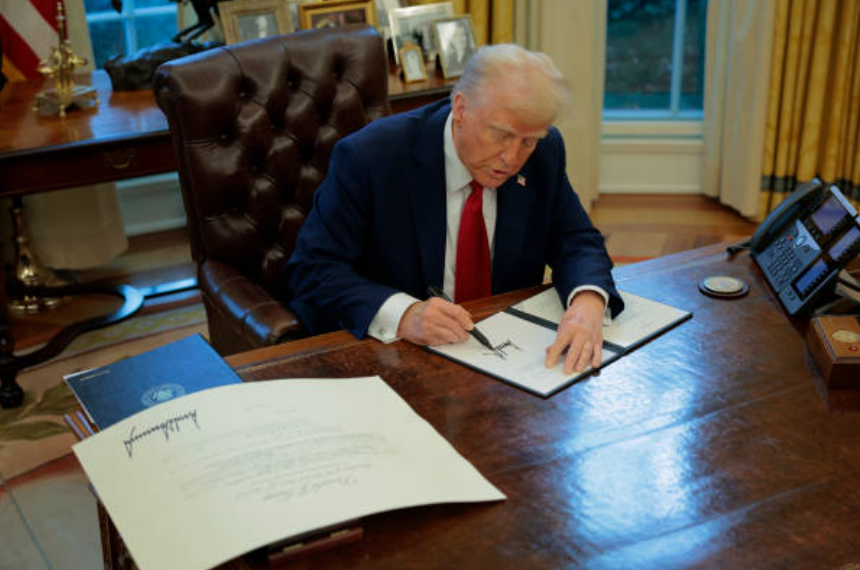Chaos Erupts as Federal Workers Return to Offices Under Trump’s Order
Federal employees across the U.S. are facing chaotic and unprepared workplaces after President Donald Trump’s January 20 return-to-office order mandated their full-time return to offices. Many workers, who had been working remotely since the COVID-19 pandemic, are now struggling with inadequate facilities, including a lack of desks, internet outages, and even infestations, leading to frustration and decreased productivity.
Workplace Chaos Under Trump’s Return-to-Office Order
At NASA headquarters in Washington, employees returned to find cockroaches and insufficient workspaces, with some forced to work without desks. In regional offices of U.S. Citizenship and Immigration Services, the scramble for desks has been compared to “The Hunger Games.” At an IRS office in Memphis, tax assessors sharing a training room cannot discuss sensitive client information over the phone due to privacy concerns.
Federal workers from eight agencies, who spoke anonymously to Reuters, described fights for desks and chairs, a lack of parking, and even being told to use personal smartphone hotspots for internet access. Some employees are working in storage rooms, closets, or on floors, while others arrive hours early to secure workspace.
Embed from Getty ImagesCriticism and Suspicions Surrounding the Return-to-Office Order
Critics, including governance experts and union representatives, argue that the lack of preparation is intentional. They believe the chaotic return-to-office mandate is designed to make working conditions so unbearable that more employees will resign. Trump has long aimed to reduce the federal workforce, which currently employs 2.3 million civilians.
Pam Herd, a professor at the University of Michigan, criticized the administration’s approach, calling it a “move fast and break things” strategy without considering the consequences. Labor unions have echoed this sentiment, accusing the administration of using the mandate to push workers out of their jobs.
Administration’s Response to the Return-to-Office Chaos
The Office of Personnel Management (OPM) stated that the goal of the return-to-office order is to improve collaboration, accountability, and service delivery. A White House official emphasized that facilities staff are working to address reported issues. However, many employees feel the rollout has been poorly executed, leading to inefficiency and frustration.
Impact on Productivity Due to the Return-to-Office Mandate
Workers across agencies report being less productive due to the lack of proper workspaces and resources. At NASA’s Goddard Space Flight Center, some employees are taking meetings in their cars using personal hotspots, while others arrive hours early to avoid traffic and secure parking. Similar issues are reported at the Department of Agriculture, where staff are fighting for office space and dealing with inadequate facilities.
Embed from Getty ImagesBroader Implications of the Return-to-Office Order
The return-to-office mandate has also highlighted the challenges of transitioning from remote work. Many agencies downsized office space during the pandemic, exacerbating the current space crunch. For example, the Justice Department’s Office of Justice Programs moved to a smaller building with fewer parking spaces, leaving employees struggling to find workspace.
Despite the administration’s claims of adequate space and resources, federal workers continue to face significant challenges. The chaotic rollout has not only disrupted their work but also raised questions about the administration’s commitment to supporting its workforce.
Conclusion: The Fallout of Trump’s Return-to-Office Order
The return-to-office order has created widespread disruption and frustration among federal employees. While the administration insists the mandate aims to improve efficiency, critics argue it is a deliberate attempt to shrink the federal workforce. As workers navigate inadequate facilities and chaotic conditions, the true impact of this policy on government operations remains to be seen.



